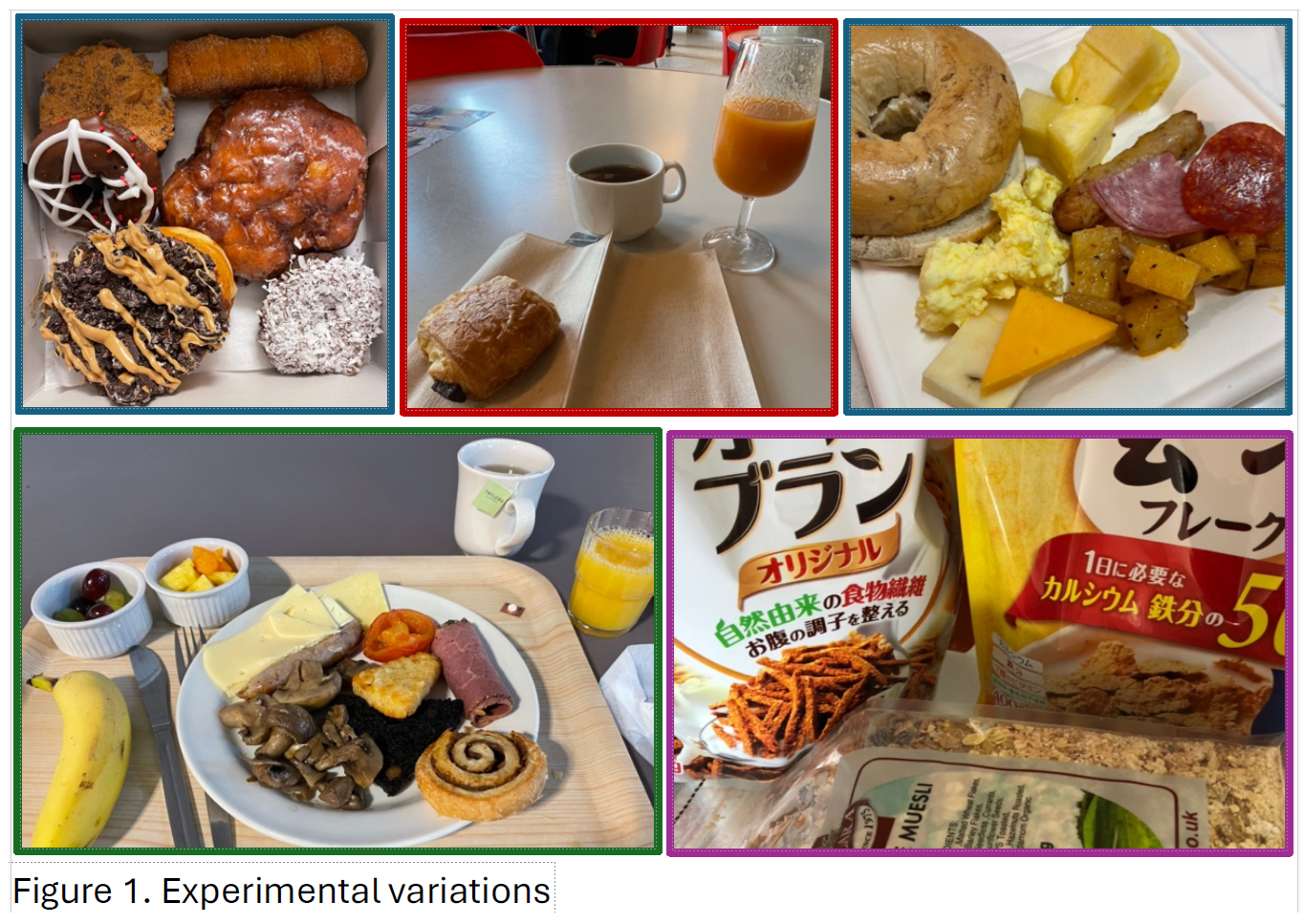教員コラム 経営学専攻
Breakfast (A response to "朝ごはん")(経営学 BIERI,Thomas E. 准教授)
2024年12月16日
I would like to respond to the column of September 17, "朝ごはん". While Prof. Matsui has his own considerable experience to bring to bear on the topic, I believe his research and conclusions as relates to the optimal breakfast are applicable only to very specific circumstances. Therefore, I would like to propose an alternative.
My own research has been conducted for over 60 years, with numerous variations on my experiments and continuous refinements of the options (see Figure 1). For example, early versions were limited to liquid provided by my mother as no other options were possible. Later experiments included a variety of grain-based processed foods of varying sweetness and colorings whose consumption was originally popularized by health advocate John Harvey Kellogg. These were served inundated in a cow-derived substitute for the liquids my mother had heretofore provided. Various fried meats, eggs, breads and combinations thereof have been substituted over the years. Besides the typical settings of dining and kitchen tables, I have even conducted dozens of experiments on a ship at sea and several on airliners, with a variety of food options in each setting. However, my current version, which has persisted over a few years, involves mixed grains - sold in the foreign foods section of my local supermarket as "fruit granola" - mixed with additional dried fruits - also available from the same supermarket - and a Japanese-produced grain mix called "国産もち麦グラノーラ". I keep this mixture stored in the refrigerator in an airtight container, and each morning scoop out roughly 200g. Over this, I pour 200ml of soy milk. I also typically accompany it with a piece of fresh fruit, usually a banana or mandarin orange.
My research results indicate that the combination of convenience and balanced nutrition (various carbohydrates, amino acids, vitamins and minerals are delivered) make this a superior breakfast. In addition, the link to childhood memories of eating related foods is an added emotional bonus.
Note to readers:
While the above is meant in part as a humorous response to another professor's post, it is also meant to illustrate a couple of serious points regarding research. Firstly, the context of research and the researcher's background, goals and assumptions can all have impacts on the ultimate results. Secondly, this kind of response - whether expanding on or in some way challenging previous findings - is a key part of academic practice and discourse.
